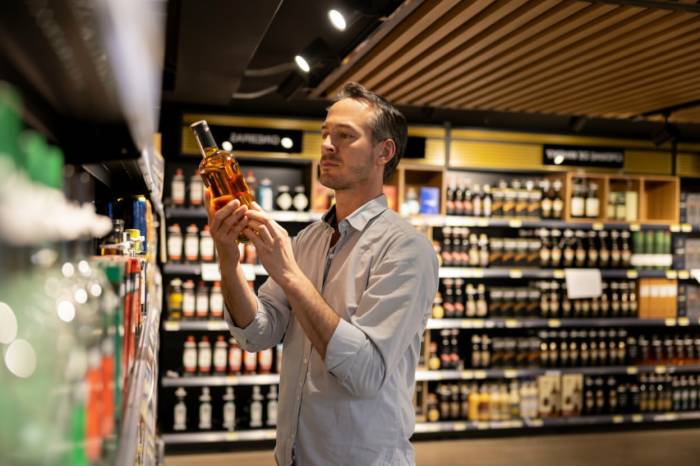Tariffs and Economic Shifts Challenge U.S. Spirits Industry as Imported Whiskey Sales Slow
Retailers report shortages and rising prices while Tequila sales surge, highlighting changing consumer preferences and ongoing legal battles over tariffs
2025-09-15

Tariffs on imported spirits are putting pressure on the U.S. beverage alcohol industry, with Bourbon, Scotch, and Irish whiskey among the most affected categories. Retailers and distilleries across the country are reporting slower sales and shortages of popular brands as tariffs disrupt the supply chain. Marty Holland, manager of The Party Source in Bellevue, Kentucky, says that tariffs have made it difficult to keep high-end single malt Scotches like The Macallan in stock. Prices for these bottles range from $93 for a 12-year-old Sherry Oak to $3,200 for a 30-year-old Double Cask. Holland recalls that during the last round of tariffs, shelves were left empty for weeks at a time.
The current tariffs include a 15% duty on European Union imports and a 10% duty on products from the United Kingdom. Although a recent ruling by the United States Court of Appeals for the Federal Circuit found many of former President Trump’s tariffs unconstitutional, they remain in effect while the case is appealed to the Supreme Court. Retailers and consumers have not yet felt the full impact of these tariffs because many importers and distributors are absorbing some of the costs to maintain pricing. Holland notes that this strategy cannot last forever. If tariffs continue, he expects sales of international spirits to drop sharply.
The spirits industry is also facing competition from hemp-based THC drinks, non-alcoholic adult beverages, and economic uncertainty. Holland says that even without tariffs, these factors are creating challenges for retailers. Tequila remains an exception to these trends. Because it is exempt from tariffs, Tequila sales at The Party Source are strong, with brands like Tequila Ocho Plata and Don Abraham Organic Blanco Tequila leading growth. Tequila is currently the store’s fastest-growing spirit category.
Bourbon continues to be the top-selling spirit at The Party Source, accounting for more than half of total spirits sales. However, demand has cooled compared to previous years. Some customers believe that tariffs might benefit Bourbon by making more bottles available domestically as exports slow down. But Holland reports that even popular brands like Four Roses’ single barrel are not selling out as quickly as they did a year ago.
Tariffs have historically hurt both U.S. spirits producers and exporters. Chris Swonger, CEO and president of the Distilled Spirits Council (DISCUS), points out that when the European Union imposed a 25% tariff on American whiskey in 2018, exports dropped by 20%. Before those tariffs, American whiskey exports had grown by 450% over two decades under zero-for-zero tariff agreements with trading partners. Swonger says that removing tariffs led to a rebound in exports and helped fuel growth in both U.S. and Irish distilleries.
Swonger argues that fair trade policies are essential for a healthy spirits market in the U.S., benefiting consumers, bartenders, distributors, and retailers alike. He says that American consumers have a strong appetite for imported products like Cognac, Scotch, and Irish whiskey, and that tariffs create ripple effects throughout the hospitality industry.
In San Jose, California, David Tabibian owns Royal Wine and Spirits and has seen price increases across all segments this year due to inflation and economic uncertainty. He has already raised retail prices but says that sales remain steady for whiskies and Tequila despite these challenges. Bourbon is still his best-selling category but is losing some momentum compared to previous years.
Tabibian believes that while tariffs may slow down sales temporarily, imported spirits will remain an important part of American drinking culture. He expects demand to recover over time as market conditions change.
As legal battles over tariffs continue in federal courts and economic pressures persist, U.S. retailers and distilleries are bracing for further disruptions in supply chains and consumer demand. Many in the industry hope for a return to zero-for-zero tariff agreements to restore stability and growth in both domestic and imported spirits markets.
Founded in 2007, Vinetur® is a registered trademark of VGSC S.L. with a long history in the wine industry.
VGSC, S.L. with VAT number B70255591 is a spanish company legally registered in the Commercial Register of the city of Santiago de Compostela, with registration number: Bulletin 181, Reference 356049 in Volume 13, Page 107, Section 6, Sheet 45028, Entry 2.
Email: [email protected]
Headquarters and offices located in Vilagarcia de Arousa, Spain.